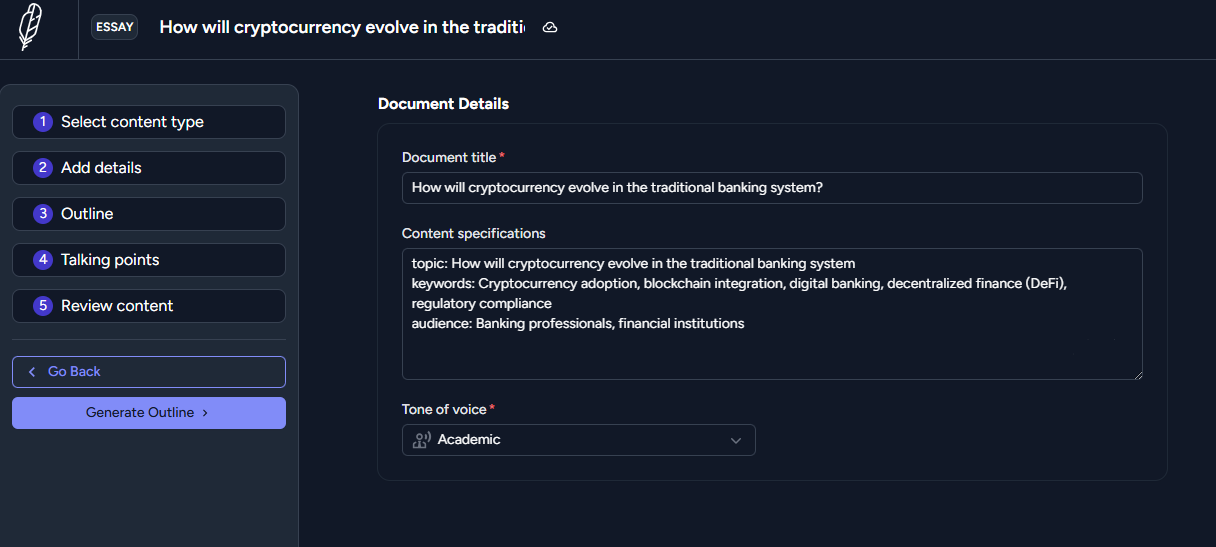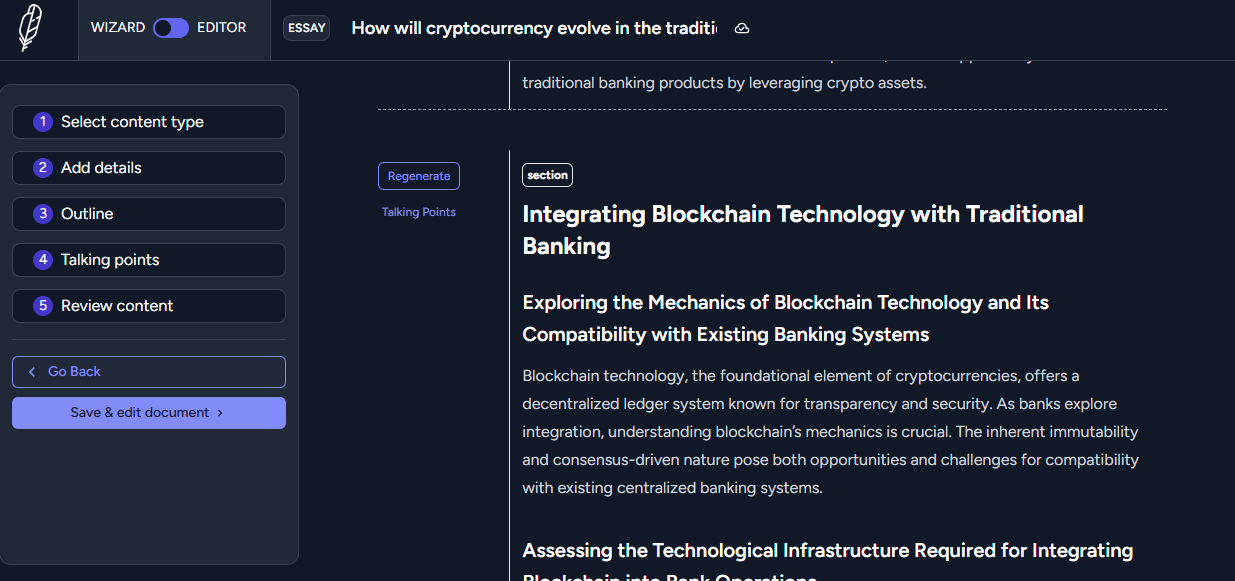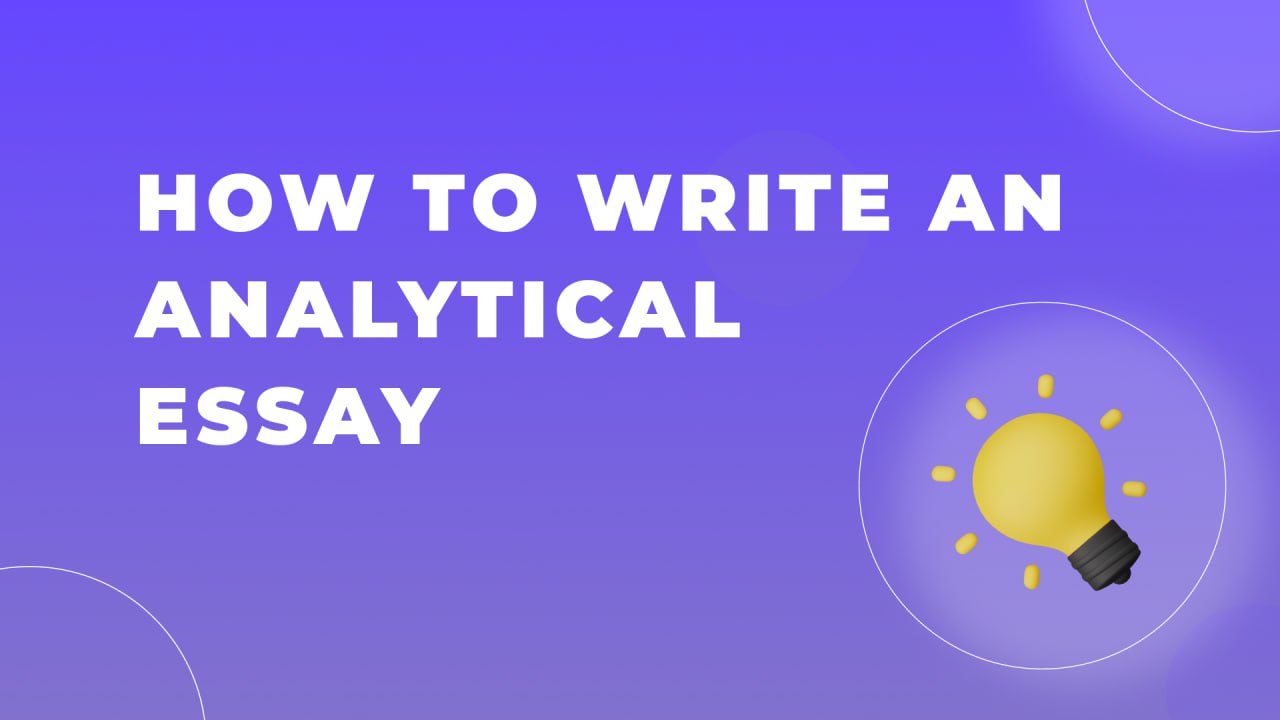Among the many types of essays assigned in high school and college, analytical essays are considered some of the most popular. They are not used to just summarize or describe a topic. Their purpose is to dive deeply into a certain topic and answer questions like “Why” and “How.”
It is the analysis that makes writing analytical essays more difficult and challenging. That’s why we are here to help! This article will help you understand the purpose of an analytical essay, how to write an analytical essay, its differences from other types, and great tips to use during the writing process. Besides, we will also discuss how AI tools can help in writing analytical essays, and what are the main mistakes everyone should avoid.
What is an Analytical Essay
An analytical essay is a type of writing that discusses and analyzes a subject, a book, or a certain topic. As it was already mentioned, it doesn’t simply recap a topic. Analytical essays explore underlying themes, make arguments, and answer various questions that may arise. Analytical essays can cover any theme. Here are some topic examples:
How does social media actually impact human behavior?
How does Shakespeare’s Hamlet address the theme of madness and revenge?
How do the heroes and the anti-heroes in Harry Potter differ/ The depiction of valor?
How will cryptocurrency evolve in the traditional banking system?
How can you fully understand Picasso’s “Guernica”?
As you can see, the analytical essay can be about anything. It just should follow the rules and required structure.
Analytical essays are used in academic institutions, newspapers, magazines, and trade journals.
The Purpose of Analytical Essays
The purposes of analytical essays are twofold, for the writer and the reader. Analyzing topics through essays enables students to develop their reasoning behind each topic and enhance their writing proficiency. This also helps to broaden their knowledge about the subject. That is why high school teachers and college professors often set this task for students.
Analytical essays are the best sources for readers to gain information and understanding. A wide range of publications allows readers to read analysis or opinion pieces on specific topics, enabling them to understand and analyze certain issues, events, or phenomena. Many professionals in economics, politics, and even the arts turn to the public using analytical writings to explain multifaceted topics while offering different viewpoints.
Most Important Distinctions Between High School and University Analytical Essays
The form and complexity of analytical essays differ from each other according to the learning level. Here’s what distinguishes them:
Degree of difficulty of the subject: In high school, essays are set on generalized topics. In university, one is expected to elaborate on the assigned topic and analyze it in a sophisticated manner.
Thesis: High school essays tend to have a simplistic single-sentence thesis. Since university essays need to be defended, they require more explanation by presenting the thesis in a more sophisticated manner.
Structure: In high school, essays are often structured in five paragraphs with three main points. In college, however, there is no set format. Instead, it depends on how many paragraphs the student is required to write based on the evidence and explanation needed to support their claim.
Depth of analysis: As students progress further in their education, analysis becomes increasingly complex. While high school essays focus on integrating basic interpretation, at the higher level, they involve deeper engagement with multiple sources, integration of critical thinking, and detailed discussions.
As students advance in their education, analytical essays become more complex, requiring stronger arguments and more detailed research. Learning how to write a strong analytical essay is a valuable skill that helps with academic success and prepares students for critical thinking in the real world.
Tips to Write the Best Analytical Essays
What is an analytical essay, and how does one go about writing it? Worry not I am sure you will be able to find the answer to it within no time! Start off with the reason why the essay was written in the first place to know what it is all about. There should be no worries about an analytical essay, simply due to the fact that there are a hundred tips available that can make writing one much easier for anyone. Let us focus on the tips that matter the most, including a few examples for greater ease!
1. Start with a Strong Hook
Every essay search comes with an intro, something that you need to carefully think through, especially about grabbing hold of the reader's attention. One of the many things that place a good hook is the thought-provoking questions, a claim, and even a surprising fact.
Example: "Despite the Cold War having completely zero battles, I can confidently state that its politics changed far too many regions for dozens of years. Why is it that two countries that fought alongside each other stayed eternally hostile to one another?"
A writer is in control of the curiosities and even leads, submitting powerful hooks to make the essay capture the reader’s attention from the start. Fulfilling your strong curiosity and allowing some of your suggestions or arguments would get the reader deeper and definitely keep them bound till the end.
2. Develop a Clear and Specific Thesis
The claim throughout proving the argument of an analytical essay is best described by the argument being discussed. On the other side, the confusion does stem from a restating vagueness of the thesis being refined. Something broader lets you eliminate vagueness but rather widens the refinement range even further.
Example of a weak thesis: “History has been altered due to World War Two.”
Example of a strong thesis: “Adolf Hitler’s rise to power alongside the onset of World War Two was the consequence of the Versailles treaty inflicting economic difficulties and political unrest in Germany.”
A reasoned argument or debate is established in the second thesis and prepares the reader for what is to come afterward. Each and every claim in the text should correspond back to the central theme as stated above.
3. Justify your Claims with Relevant Data
An analytical essay is more than just a personal opinion; it is about proving the point with rock-solid evidence supporting it. All of the claims presented have to be backed up with facts and proof.
Looking into a particular political event, social analysis, as well as commentary by the public, tends to overshadow social media commentary, and experts do the social commentary, their analysis, and policies over audiences’ perspectives and opinions.
Supporting arguments with the Cuban Missile Crisis declassified CIA documents or quoting John F. Kennedy’s famous speeches. John F. Kennedy’s words are powerful and above everything else. There are some sources I can use that if I depended heavily on them, would serve a far greater purpose to the other side of the argument. Using such unreliable sources gives the audience the prediction that the analysis has been weakened and results in a rather unconvincing essay.
4. Support Your Claims with Evidence
Analyzing an essay is not decided by stating opinions, it is about every argument you wish to put forward has to be backed with solid evidence and credible proof. Think of every statement and claim as something that cannot lack evidence, such as facts, figures, and instances from history.
Using economic sanctions on Russia as my example, arguing that sanctions damage the economy shouldn't simply state that sanctions hurt a country's economy. Rather, use evidence to support the argument.
Example: "When the West put sanctions on Russia in 2014, the ruble almost halved in value within the year, inflation bloated, and there was a 50% dip in foreign investments.
Your case becomes stronger when you use specific, clear examples, and it is better than using vague reasoning that proves that your analysis is credible and reliable.
5. Use AI Tools Wisely
AI tools like Grammarly, GetCopy AI, and ChatGPT can help with checking grammar, rephrasing sentences, and even brainstorming. However, they shouldn’t serve as the primary resource because critical thinking must still occur.
For example, one can use AI to rephrase a sentence but must ensure the suggestion is practical in the real world. AI doesn't consider deep thinking, so their generated texts make it important to input one's thoughts and explanations.
6. Proofread and Revise Comprehensively
An opinionated essay will fail to make an impression if it has too many petty mistakes. Before attempting to submit the final draft, do remember to proofread and revise. Here is what to look at:
Grammar and spelling mistakes: The blunders may make your essay look lazy.
Clarity and structure: Is there a logical connection between each paragraph and the following one?
Strong transitions: A list of ideas is not a good argument; it should be made complete through a logical flow.
Unwanted Redundancy: The essay should be straightforward. Hence, words should not be repeated for the same point.
A good trick is to read your essay aloud. This can assist in identifying peculiar wordings and omitted phrases that may go unnoticed during silent reading. You may also invite a friend or coworker to look at your work; they will be able to identify problems you missed with their new perspective.
How AI Tools Can Help Improve Your Analytical Essays
Employing AI tools when composing analytical essays can immensely help refine the structure of arguments as well as develop reasonable content. AI can be a great answer to the question of how to write an analytical essay. GetCopy AI, for example, helps high school and college students by augmenting research completion, improving writing style, and polishing the introductions and conclusions.
AI-powered writing assistants can help fix essays to any level of detail. You can alter the outline, add more information to the essential portions, and make sure that the arguments are backed with sufficient evidence. Unlike other text generators, GetCopy AI puts the power of content creation into your hands, allowing you to retain your identity. Whether it is a multi-faceted analysis for a class or an in-class assessment with rigid rules, AI can make everything easier.
AI tools can generate useful conclusions and some of the best features that make them so versatile. AI systems can analyze the entire essay, from the introduction and body paragraphs, to draft a proper conclusion. They can restate your thesis statement and summarize the key arguments, along with providing a strong closing statement. If you are not satisfied with the output, you can easily tweak how the thesis gets rephrased or summed up to adjust your expectations. GetCopy AI simple interface and easy navigation make everything smooth and simple. Here are some of the main steps of the process:
Just fill in the information keywords and choose the tone of voice.

Then simply click on “Generate Outline”, and start generating your essay. After the outline, generate talking points and make changes if needed. And finally, “Generate Content”.

If you want to change something, regenerate content and edit it without any difficulty. When everything looks good, click on “Save and edit the document.”
Though AI produces tools to assist in the writing of essays, their aid is preferable over using them to substitute critical thinking. Remember that the essay should be original, structured, and captivating, which is why the final product should always be based on your insights and analysis.
FAQs
What is the difference between an analytical essay and a summary essay?
An analytical essay is more advanced than a simple summary. Instead of just recollecting information or events, it analyzes, interprets, and explains the topic in greater detail. This type of writing aims to be argumentative rather than simply reporting facts.
What makes a good thesis in an analytical essay?
A strong thesis statement is well-developed, stands to be defended, and leads your analysis in a particular direction. Good arguments should not be generalized, though; they need precise statements that can be empirically tested. For example, instead of stating, “Europe was affected by World War II,” the statement “Nazi Germany was able to rise to power, winning the economic war enabled by the Treaty of Versailles” demonstrates real argumentative skill.
Is it possible to write an analytical essay without credible sources?
By definition, some essays depend on self-analysis, while others demand the justification of arguments with credible sources. Depending on the subject matter, some arguments may require primary sources like historical documents, expert testimonies, statistical information, or published essays. Lacking evidence will likely make your analysis appear as if it is filled with unsupported beliefs.
Can AI tools help with writing an analytical essay?
AI can help to an extent by organizing your structure, pointing out grammatical mistakes, and transforming active statements into passive ones. However, AI shouldn't replace critical thinking. Your writing will be better thanks to programs such as Grammarly or GetCopy AI, but it is the insightful analysis that truly adds value to the essay. Every piece of AI content should be cross-examined to confirm if it agrees with the argument and writing style of the user.
How do I write a powerful conclusion?
A powerful conclusion must be:
Rephrasing the thesis statement in a different way.
Summarizing the key arguments in a different form than the one previously stated.
Ending with a thought-provoking quote, question, or real-world consideration.

